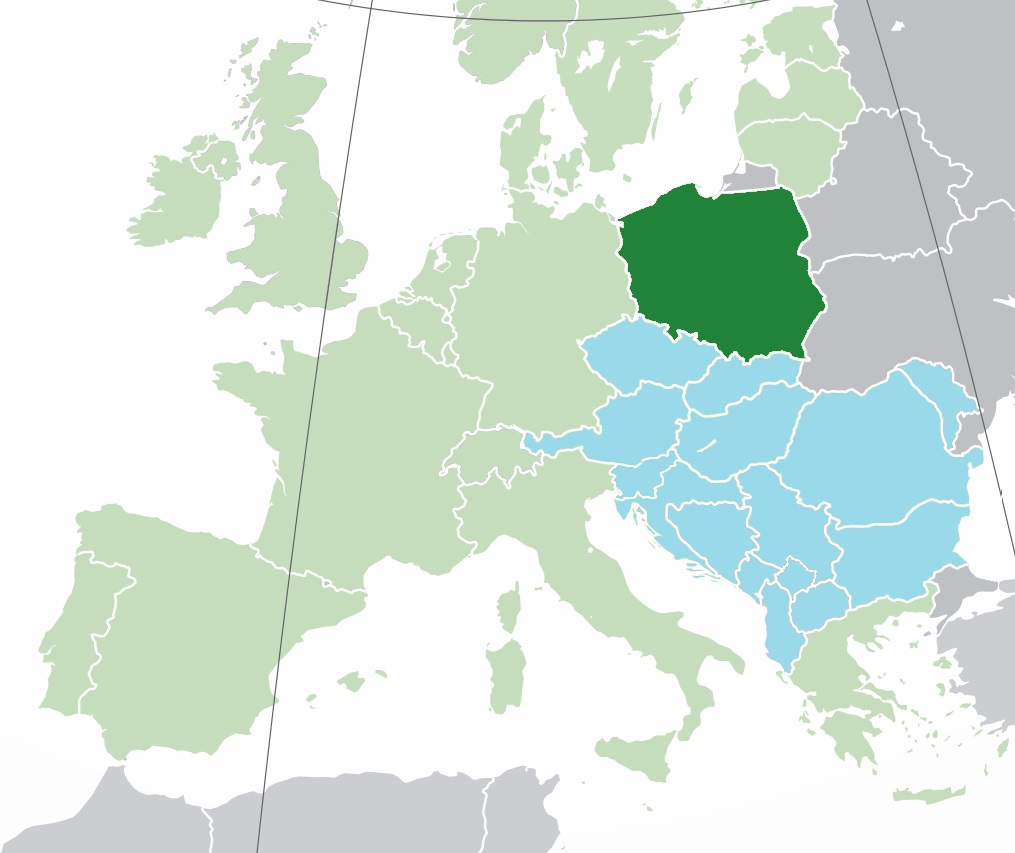
Poland participates with two groups located at
Institute of Physical Chemistry, Polish Academy of Sciences, Warsaw
Institute of Physics, Polish Academy of Sciences, Warsaw
The Institute of Physical Chemistry to the Polish Academy of Sciences hosts numerous research groups focused on physical chemistry and only few of them are briefly described here as an example of the broad expertise the institute possesses.
The members of the group of Complex Systems and Chemical Processing of Information are experienced in theoretical and simulation studies of (i) phase transitions and critical phenomena, (ii) self-assembly in amphiphilic and colloidal systems, (iii) shape transformations in biological membranes, (iv) ionic systems, (v) effects of confinement on simple and complex fluids, (vi) kinetics and pattern formation in chemical reactions, (vii) active matter, including self-propelled objects in complex environment. We introduce and study lattice and continuous models of various bulk and confined inhomogeneous systems. Density Functional Theory (DFT), Statistical Field Theory (SFT), local Mean Field theory, exact transfer matrix methods and advanced methods of minimization of functionals defined on curved surfaces, as well as Monte Carlo and Molecular Dynamics simulations are used in these studies.
The interest of the group of Physical chemistry of complex systems lies is in mathematical modelling of physicochemical processes encountered in soft matter, active matter, and biological systems. The members of this team develop theories within the framework of statistical physic to describe, understand and predict the behaviour, and discover new physical phenomena in studied systems. They perform molecular simulations using methods of Monte Carlo and molecular dynamics to investigate on a molecular scale complex physical systems. The knowledge from many disciplines of science such as mathematics, physics, chemistry, biology, and computer science is combined in their work.
The main idea, which unifies the research of the Living Materials group, is to create a connection between biology and material chemistry. Such a connection can be accomplished in at least two ways: 1) by using natural building blocks, perfected by evolution (biomolecules, viruses, whole organisms) to prepare functional materials or 2) applying knowledge of physical chemistry, material engineering and nanotechnology to create modern nanomaterials that can be used in biology and medicine.
Contact person:
Prof. Dr. Alina Ciach (e-mail: alina.ciach@gmail.com )
Institute of Physical Chemistry
Polish Academy of Sciences
Kasprzaka 44/52
PL-01-224 – Warsaw
Poland
The group of Soft Matter and Fluids Physics within the Division of Theoretical Physics from the Institute of Physics of the Polish Academy of Sciences is active in teaching and research in computational sciences with a focus on soft matter systems. The group has expertise in a range of methods (e.g., molecular and fluid dynamics methods) with recent work dealing with fluid dynamics phenomena, such as evaporation, fluid motion on gradient substrates, icing, evaporation processes, nanobubbles, superspreading, pinning, cloud formations, and others. The group is active in developing various computational methods in different areas, for example, biophysics (GoMARTINI model for studying large conformational changes of proteins). The group also has background in statistical physics and thermodynamics, while work related to
polymer physics has dealt with the study of brush polymer systems. The group is active in both fundamental and applied research, which is carried out in the frame of various international collaborators.
Contact person:
Prof. Dr. Panagiotis Theodorakis (e-mail: panos@ifpan.edu.pl)
Institute of Physics
Polish Academy of Sciences
Aleja Lotników 32/46
PL-02668 – Warsaw
Poland
